More than a decade ago I worked for a boss for the last time.
I was young, ambitious and eager to prove myself. My drive for growth and entrepreneurship however, was stuck in a corporate story. My colleagues told me: “Here you will find the best opportunities, that you will not find outside as a self-employed trainer”.
And in the beginning I listened and believed them. At a certain moment I was training freelance trainers in programmes that I developed, who stepped into their client’s offices with bigger smiles than me.
The final push was taking part in yet another appraisal meeting soap.
My manager, who – with good intentions – tried to give me advice on how to develop myself, without having been present in my trainings. My last thought, that kept me from taking the action to start my own company, was the concept ‘that I needed a business plan’. This idea of ‘no business plan, no business’ provided me with some social proof, but was just me being afraid.
Wrapping my fear up in a sophisticated sounding story.
Taking real action in line with our dreams will confront our fears and doubts. Fear of uncertainty that goes along with a new step. Not knowing for sure that you possess the qualities that are needed to guarantee success.
Supporters for your doubts will show up easily, warning you of the risks involved and the stories that are proof of failed endeavours. All these reasons, thoughts and advises find their origins in the soil of keeping things the same. It bonds and seems to be ‘oh so wise and safe’.
When I decided to start my business, someone blamed me for lack of loyalty and I was told: “That it would be a waste of my talent.”
Often I now ask others: ”What do you already know that you need to do, that you procrastinate (out of fear)?” People have answers and stories, they know what they should be doing, but their thinking stops them. The knowing is insufficient, knowledge without action is talking bubbles.
That’s why I like the saying: “The universe applauds action, not thought” so much.
In Barbara Sher’s Ted talk below, she explains this brilliantly with the following example.
Imagine you find a young horse on the street. You take her home and raise her comfortably in your basement. You feed her well, you nourish her, let her watch TV and dress her warmly.
The horse grows up without needing anything. However, she is not happy. When you ask her why she is unhappy, she would not know why.
If you take the horse outside on to the meadow and she gallops freely. Only then she will know what she was looking for.
The video (9 minutes) is a bit old, allow yourself a few moments to get into it.
Let the reins go and take your run on the meadow.
Roeland

